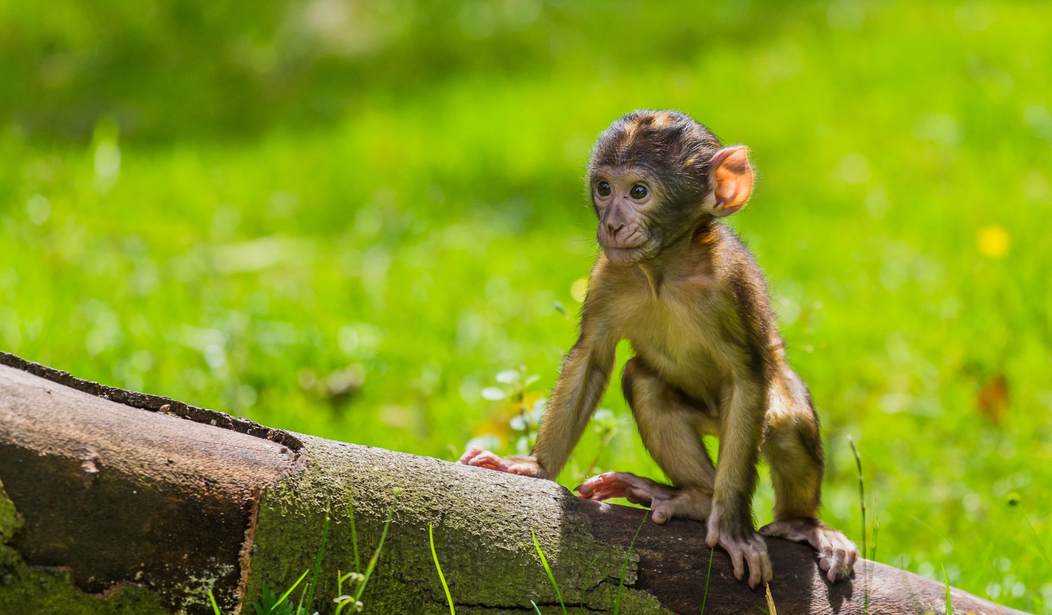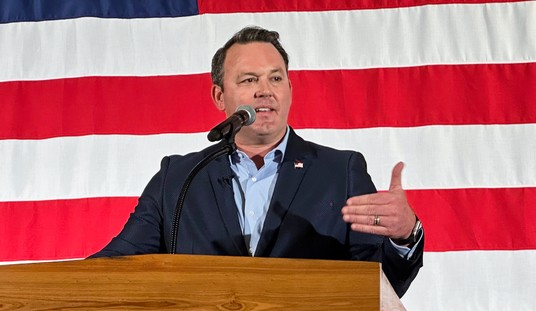News broke last week that Chinese scientists have successfully cloned two monkeys, breaking what is known as the “primate barrier.” With the healthy birth of two Macaque monkeys, scientists have achieved the reproductive cloning of primates, the mammal order that includes monkeys, apes, and humans. This represents a significant step toward the reproductive cloning of humans.
While scientists claim they do not intend to push toward cloning humans, a Christian Ph.D. biologist warned that cultural trends suggest otherwise. Abortion and euthanasia suggest the value of human life has decreased in the West, even as that moral precept is much weaker in China.
“I connect it to the issues of euthanasia and abortion because it all boils down to what value we place on human life,” Ann Gauger, a senior research scientist at the Biologic Institute who earned her Ph.D. in biology at the University of Washington and did post-doctorate work at Harvard, told PJ Media.
“It’s a question of how you view human life. If you view it as starting from conception to natural death, then for cloning it involves the creation of a new human being, although by artificial means,” Gauger explained.
The kind of cloning discussed here involves introducing a somatic cell nucleus into the egg, which then develops into an embryo. The Chinese study itself seemed rather wasteful and problematic. Out of 127 eggs injected with somatic cell nuclei, 79 were transferred into surrogate mothers, leading to six pregnancies, and two live births. Another part of the experiment involved 290 eggs, resulting in 22 pregnancies, 2 live births, and no surviving monkeys.
In the case of humans, each embryo is genetically an individual, with the potential to grow into an adult human being. After an embryo is created, it can be implanted in a womb for birth — “reproductive cloning” — or it can be harvested for stem cells and medical research — “therapeutic cloning.”
Gauger called both kinds of cloning “problematic.”
“At least from my point of view and the Catholic church and others, the creation of human life from the beginning is human and it should be treated as such, not used for spare body parts or the creation of organs for other people or for healing of diseases,” the biologist said. She explained that in general the culture accepts the value of therapeutic cloning but rejects reproductive cloning.
Most of the cultural scares involve reproductive cloning used for therapeutic goals: films like “The Island” (2005) present a dystopia in which clones are bred in order to harvest organs and keep the original humans alive.
These fictional presentations seem rather far-fetched, but Gauger suggested the modern world is already struggling with these kind of deep moral problems, and the response does not provide grounds for hope when cloning becomes a more immediate issue.
“I have a disabled daughter, and I know people who have Down syndrome children. Most Down syndrome children — if they’re diagnosed in utero — end up being aborted,” the biologist lamented. “Is all human life of value or is it only valuable if it’s of use to the society?”
She connected the selling of baby parts from abortion to this issue as well — using human beings for research.
Gauger suggested a deep disconnect between scientists’ research and their consciences. “I’ve been in labs that they were using parts from human embryos derived from abortion. The people who were doing it didn’t seem bothered by it. It’s actually a disconnect between the work they do and their moral sensibilities,” she said.ee
Chillingly, the Christian biologist added, “I wouldn’t be surprised if they haven’t shut off part of their thinking so they can do the work.”
This suppression of conscience is terrifying, and combined with the curiosity and rush to achieve something new, it may present a powerful incentive for scientists to delve into human cloning.
“The push in the human direction comes mainly from the scientist’s desire to be the first to do something, to meet a challenge, to be curious about ‘what would happen if I did this,'” Gauger explained. “It’s an intrinsic human thing to want to explore and to want to control and to be the first.”
Then came the personal revelation: “I probably know scientists who are now working on this issue and most of them have not considered seriously the ethical questions. I know some who have and who have left that area of research.”
Gauger, a committed Roman Catholic who rejects the theory of evolution, linked the suppression of conscience in matters like this to the suppression of intelligent design in the scientific community.
“We can see evidence of design in nature, whether at the cosmological or biological level,” she argued. “That truth which seems obvious — even Richard Dawkins acknowledges that things look like they’re designed — should be recognized and should be a valid area of research.”
“The people who don’t hold my view are the ones who are willing to go forward with the cloning and who would deny Intelligent Design because de facto they would say there is no such thing as a designer and it is outside of science,” Gauger argued. She suggested that most scientists who push cloning are not Christian. “Based on my experience in the lab, most of them are not Christian. Lacking that worldview they both deny the possibility of design and feel the freedom to do whatever they are able to do.”
She pointed to Darwinism as the key threat behind the loss of understanding of human dignity. From this flows the silencing of moral qualms, the rejection of Intelligent Design, and even the suppression of human exceptionalism.
“Language, physics, symphonies — these are not things that animals are capable of. We control our environment in ways that animals can’t. Especially the gift of language permits what we do,” Gauger said. “It’s a reflection of our ability of abstract thought to think about things we can’t see taste or touch. We think about the good the true and the beautiful Those are things that are not something you’d find your average dog thinking about.
She argued that much of the push of the animal rights movement also denies human exceptionalism, and this is bleeding into scientific circles. In the Darwinist worldview, “we’re the product of a random process and we could have been anything else.” That perspective includes “nothing about sharing the Image of God,” the fundamental idea behind human dignity.
If modern scientists reject “made in the image of God,” they reject human dignity, and they reject the distinction between humans and animals. Then the question becomes whether human beings have intrinsic worth or can become a means to an end.
“We’ve lost the sense of human dignity because there’s no source for it,” Gauger lamented. “We’ve thrown away the Judeo-Christian worldview in favor of a view where literally we are the product of random processes.”
The Chinese scientists insisted that “there is no intention for us to apply this method to humans,” but this woman with inside knowledge of the scientific community in biology suggested otherwise. Perhaps the scientific community should rethink its commitment to Darwinism before it’s too late.









Join the conversation as a VIP Member